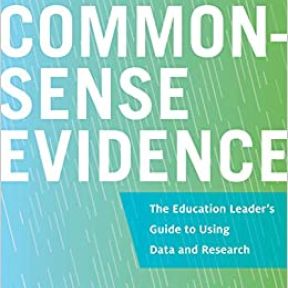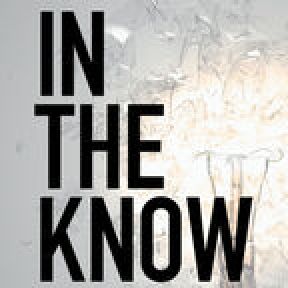Jonathan Wai Ph.D.
I am an Assistant Professor of Education Policy and Psychology, the 21st Century Endowed Chair in Education Policy at the University of Arkansas in the Department of Education Reform, and also hold a joint (courtesy) appointment in the Department of Psychology. I've also held positions at Duke University and Case Western Reserve University. Broadly, I study education policy through the lens of psychology. For more about my work, please visit my professional page. CV here (where you can find my email). Google Scholar Profile here.
I currently serve as "member at large" for the AERA Research on Giftedness, Creativity, and Talent Development group, on the Board of Directors of the International Society for Intelligence Research, and on the editorial boards of Intelligence, Journal of Expertise, Journal for the Education of the Gifted, and Gifted Child Quarterly.
Selected Research Publications
Brown, M. I., Wai, J., & Chabris, C. F. (in press). Can you ever be too smart for your own good? Comparing linear and nonlinear effects of cognitive ability on life outcomes. Perspectives on Psychological Science. Times Educational Supplement, Forbes, The Conversation
Lewis, N. A., Jr., & Wai, J. (in press). Communicating what we know, and what isn't so: Science communication in psychology. Perspectives on Psychological Science. Forbes
Wai, J., & Benbow, C. P. (in press). Educational interventions on behalf of the gifted: Do they have lasting links with development? In J. Van Tassel-Baska (Ed.), Talent development in gifted education: Theory, research, and practice.
Kanaya, T., Wai, J., & Worrell, F. C. (in press). The "Flynn effect" and decision making in education: Addressing fairness concerns. In AERA book titled Fairness issues and solutions in educational and psychological testing: Implications for researchers, practitioners, policy makers, and the public.
Wai, J., & Bailey, D. H. (in press). How intelligence research can inform education and public policy. In A. K. Barbey, S. Karama, & R. J. Haier (Eds.), The Cambridge Handbook of Intelligence and Cognitive Neuroscience. Cambridge, UK: Cambridge University Press.
Wai, J., & Worrell, F. C. (2020). How talented low-income kids are left behind. Phi Delta Kappan, 102(4).
Lakin, J. M., & Wai, J. (2020). Making space for spatial talent. Phi Delta Kappan, 102(4).
Wai, J. (2020). Communicating intelligence research. Journal of Intelligence, 8(4), 40.
Wai, J., & Lakin, J. M. (2020). Finding the missing Einsteins: Expanding the breadth of cognitive and noncognitive measures used in academic services. Contemporary Educational Psychology. Forbes
Lakin, J. M., & Wai, J. (2020). Spatially gifted, academically inconvenienced: Spatially talented students experience less academic engagement and more behavioral issues than other talented students. British Journal of Educational Psychology. The Conversation, Fordham Institute, Forbes, Edutopia
Maranto, R., & Wai, J. (2020). Why intelligence is missing from American education policy and practice, and what can be done about it. Journal of Intelligence, 8, 2. Psychology Today
Asbury, K., & Wai, J. (2020). Viewing education policy through a genetic lens. Journal of School Choice. Discussion from Byrne and colleagues
Halpern, D. F., & Wai, J. (2020). Sex differences in intelligence. In R. J. Sternberg (Ed.), The Cambridge Handbook of Intelligence (pp. 317-345). Cambridge, UK: Cambridge University Press.
Kell, H. J., & Wai, J. (2019). Right-tail range restriction: A lurking threat to detecting associations between traits and skill among experts. Journal of Expertise, 2, 224-242. Forbes
Wai, J., & Allen, J. (2019). What boosts talent development? Examining predictors of academic growth in secondary school among academically advanced youth across 21 years. Gifted Child Quarterly, 63, 253-272. Psychology Today
Antonakis, J., Simonton, D. K., & Wai, J. (2019). Intelligence and leadership. In M. D. Mumford & C. A. Higgs (Eds.), Leader thinking skills: Capacities for 21st century leadership (pp. 14-45). London: Taylor & Francis.
Wai, J., Makel. M. C., & Gambrell, J. (2019). An opportunity to reflect on the relationship between elite education, inferred cognitive ability, and the development of eminent creative expertise. Journal of Expertise, 2, 145-147.
Wai, J., Makel, M. C., & Gambrell, J. (2019). The role of elite education and inferred cognitive ability in eminent creative expertise: An historical analysis of the TIME 100. Journal of Expertise, 2, 77-91. The Conversation
Kanaya, T., Wai, J., & Miranda, B. (2019). Exploring the links between receiving special education services and adulthood outcomes. Frontiers in Education: Special Educational Needs, 4, 56. Psychology Today, Chalkbeat
Wai, J. & Kanaya, T. (2019). Wealth generation as a form of expertise: An examination from 2002-2016 of elite education, cognitive ability, and the gender gap among billionaires. Journal of Expertise, 2, 59-76. Psychology Today
Wai, J., & Uttal, D. H. (2018). Why spatial reasoning matters for education policy. American Enterprise Institute Policy Report. Forbes, Edutopia
Wai, J., Brown, M. I., & Chabris, C. F. (2018). Using standardized test scores to include general cognitive ability in education research and policy. Journal of Intelligence, 6, 37. The Washington Post, NBC News, The Conversation, CNBC, Salon, Business Insider, Forbes
Wai, J., & Halpern, D. F. (2018). The impact of changing norms on creativity in psychological science. Perspectives on Psychological Science, 13, 466-472.
Wai, J., & Perina, K. (2018). Expertise in journalism: Factors shaping a cognitive and culturally elite profession. Journal of Expertise, 1, 57-78. Scientific American, The Intercept, The Hill, AlterNet, FAIR
Wai, J., Hodges, J., & Makel, M. C. (2018). Sex differences in ability tilt in the right tail of cognitive abiltiies: A 35-year examination. Intelligence, 67, 76-83. City Journal
Wai, J., Worrell, F. C., & Chabris, C. F. (2018). The consistent influence of general cognitive ability in college, career, and lifetime achievement. In K. McClarty, K. Mattern, & M. Gaertner (Eds.), Preparing students for college and careers: Theory, measurement, and educational practice (pp. 46-56). New York, NY: Routledge.
Wai, J., & Worrell, F. C. (2017). Fully developing the potential of academically advanced students: Helping them will help society. American Enterprise Institute Policy Report. Times Educational Supplement
Wai, J., & Rindermann, H. R. (2017). What goes into high educational and occupational achievement? Education, brains, hard work, networks, and other factors. High Ability Studies, 28, 127-145. The Conversation, U.S. News & World Report, Newsweek, CBS News, Time, World Economic Forum, Quartz
Wai, J., & Kell, H. J. (2017). How important is intelligence in the development of professional expertise?: Combining prospective and retrospective longitudinal data provides an answer. In D. Z. Hambrick, G. Campitelli, & B. Macnamara (Eds.), The science of expertise: Behavioral, neural, and genetics approaches to complex skill (pp. 73-86). Routledge.
Makel, M. C., Wai, J., Peairs, K. F., & Putallaz, M. (2016). Sex differences in the right tail of cognitive abilities: An update and cross cultural extension. Intelligence, 59, 8-15. Quartz, Spiegel Online, Science
Wai, J. & Worrell, F. C. (2016). Helping disadvantaged and spatially talented students fulfill their potential: Related and neglected national resources. Policy Insights from the Behavioral and Brain Sciences, 3, 122-128. The Conversation, The Huffington Post, National Review, Quartz, Business Insider
Wai, J., & Lincoln, D. (2016). Investigating the right tail of wealth: Education, cognitive ability, giving, network power, gender, ethnicity, leadership, and other characteristics. Intelligence, 54, 1-32. Quartz, Marginal Revolution, University World News
Makel, M. C., & Wai, J. (2016). Does economic research in education work? For which studies? Journal of Advanced Academics, 27, 73-80.
Wai, J., & Kell, H. J. (2016). What innovations have we already lost?: The importance of identifying and developing spatial talent. In M. S. Khine (Ed.), Visual-spatial ability in STEM education: Transforming research into practice (pp. 109-124). Dordrecht, The Netherlands: Springer.
Wai, J., & Rindermann, H. R. (2015). The path and performance of a company leader: An historical examination of the education and cognitive ability of Fortune 500 CEOs. Intelligence, 53, 102-107. The Washington Post, Business Insider, Marginal Revolution
Makel, M. C., Wai, J., Putallaz, M., & Malone, P. (2015). The academic gap: An international comparison of the time allocation of academically talented students. Gifted Child Quarterly, 59, 177-189. The Conversation, Quartz, World Economic Forum
Miller, D., & Wai, J. (2015). The bachelor's to PhD STEM pipeline no longer leaks more women than men: A 30-year analysis. Frontiers in Psychology: Developmental, 6, 37. Nature, Science, U.S. News, Inside Higher Ed, The Guardian
Wai, J. (2015). Long-term effects of educational acceleration. In S. G. Assouline, N. Colangelo, J. VanTassel-Baska, & A. E. Lupkowski-Shoplik (Eds.), A nation empowered: Evidence trumps excuses that hold back America's brightest students (V. II, pp. 73-83). Iowa City, IA: The Belin-Blank Center for Gifted and Talented Education.
Wai, J. (2014). Investigating the world's rich and powerful: Education, cognitive ability, and sex differences. Intelligence, 46, 54-72. CNBC, The Washington Post, Inc., Business Insider
Wai, J. (2014). What does it mean to be an expert? Intelligence, 45, 122-123.
Wai, J. (2014). Experts are born, then made: Combining prospective and retrospective longitudinal data shows that cognitive ability matters. Intelligence, 45, 74-80. Business Insider, Scientific American, MIT Sloan Analytics Conference
Wai, J. (2013). Investigating America’s elite: Cognitive ability, education, and sex differences. Intelligence, 41, 203-211. CNBC, Financial Times, The Wall Street Journal
Wai, J., Putallaz, M., & Makel, M. C. (2012). Studying intellectual outliers: Are there sex differences, and are the smart getting smarter? Current Directions in Psychological Science, 21, 382-390. The Economist
Makel, M. C., Putallaz, M., & Wai, J. (2012). Teach students what they don't know but are ready to learn: A commentary on "Rethinking giftedness and gifted education." Gifted Child Quarterly, 56, 198-201.
Wai, J., & Putallaz, M. (2011). The Flynn effect puzzle: A 30-year examination from the right tail of the ability distribution provides some missing pieces. Intelligence, 39, 443-455. Wired, Scientific American
Makel, M. C., Li, Y., Putallaz, M., & Wai, J. (2011). High ability students' time spent outside the classroom. Journal of Advanced Acacdemics, 22, 720-749.
Wai, J., Cacchio, M., Putallaz, M., & Makel, M. C. (2010). Sex differences in the right tail of cognitive abilities: A 30-year examination. Intelligence, 38, 412-423. The New York Times, Quartz
Wai, J., Lubinski, D., Benbow, C. P., & Steiger, J. H. (2010). Accomplishment in science technology, engineering, and mathematics (STEM) and its relation to STEM educational dose: A 25-year longitudinal study. Journal of Educational Psychology, 102, 860-871. Education Week, NPR
Wai, J., Lubinski, D., & Benbow, C. P. (2009). Spatial ability for STEM domains: Aligning over fifty years of cumulative psychological knowledge solidifies its importance. Journal of Educational Psychology, 101, 817-835. Scientific American, NPR, Science
Wai, J., Lubinski, D., & Benbow, C. P. (2009). Aligning potential and passion for promise: A model for educating intellectually talented youth. In J. S. Renzulli, E. J. Gubbins, K. S. McMillen, R. D. Eckert, & C. A. Little (Eds.), Systems and models for developing programs for the gifted and talented (2nd ed., pp. 693-716). Mansfield Center, CT: Creative Learning Press.
Halpern, D. F., & Wai, J. (2007). The world of competitive Scrabble: Novice and expert differences in visuospatial and verbal abilities. Journal of Experimental Psychology: Applied, 13, 79-94. The New Republic, The Chronicle of Higher Education
Wai, J., Lubinski, D., & Benbow, C. P. (2005). Creativity and occupational accomplishments among intellectually precocious youths: An age 13 to age 33 longitudinal study. Journal of Educational Psychology, 97, 484-492. The New York Times, Science
Halpern, D. F., Wai, J., & Saw, A. (2005). A psychobiosocial model: Why females are sometimes > and sometimes < males in math achievement. In J. Kaufman and A. Gallagher (Eds.), Gender differences in mathematics (pp. 48-72). Cambridge, MA: Cambridge University Press.










